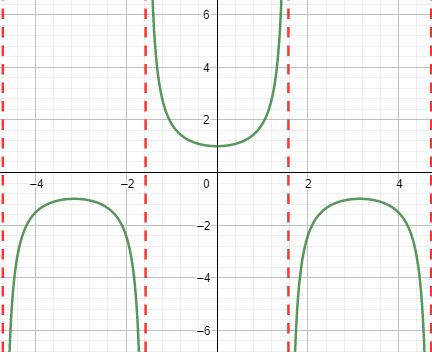
You've come to the right spot if you want information about option yields. We will discuss the effect of dividends upon option price, black-scholes algorithm, and ex-date. If you are new at option trading, continue reading to learn how this factor impacts option trading. These are some helpful tips for beginners. These tips can be used to trade options successfully once you have read them. But before you get started, make sure to read our other articles about option trading.
Impact of dividends sur option prices
The most important news for traders is the company's dividend payout. This event can have a significant effect on the price for the options. The stock price will often fall after the dividend payment, with the amount of the drop varying depending on several factors. For example, the ex-dividend date is the first trading day following the dividend payment. Companies that pay no dividends are also less valuable than those that do. The company that doesn't pay dividends will see their call or put options go up.

Although dividends can affect stock prices, their impact on option prices doesn't happen immediately. Although the dividend amount doesn't directly affect stock prices, it is sufficient to impact the option price. If a company pays a large dividend, the price of a call option will drop. This is due in part to the fact the stock's value will fall as a result of the dividend. As a result, the option price will fall as well.
Ex-date impact of dividends
Stock options can have an expiration date. Make sure to research it. Options that mature on the third Tuesday of each month usually have a maturity date at the end of that month, while options with weekly expiration days often expire on Fridays. It is important to know how long the options are valid before they expire. Options with a greater time value are more sensitive to stock price changes.
Although stocks don't normally react to dividends prior to their ex-dates, options prices can be affected early in anticipation. Call option holders could see their option prices drop if a stock expects to pay a substantial dividend. On the other side, a put option's value will rise as the exdate approaches. The price for call options will fall if the underlying stock is down by even 1%.
Influence of dividends on black-scholes Formula
Black-Scholes pricing formula, also known to be the Black Scholes-Merton price formula, is used. The formula determines the theoretical price of options when they have been issued in European style. This means that the call option's price at exercise is equal to its discounted price less the likelihood of exercising it. Dividends will not be taken into consideration in this formula.

Call premiums are a way for investors to consider the impact of dividends on stock values. Because the Black-Scholes formula does not take dividends into account, option sellers take advantage of the situation and square their positions at the time of the dividend ex-date. The Merton extension of Black Scholes formula, which was introduced in 1973, allows dividends to be included in the model.
FAQ
What are the benefits to owning stocks
Stocks can be more volatile than bonds. The value of shares that are bankrupted will plummet dramatically.
However, if a company grows, then the share price will rise.
For capital raising, companies will often issue new shares. Investors can then purchase more shares of the company.
To borrow money, companies can use debt finance. This gives them access to cheap credit, which enables them to grow faster.
When a company has a good product, then people tend to buy it. As demand increases, so does the price of the stock.
Stock prices should rise as long as the company produces products people want.
What is a REIT?
A real estate investment Trust (REIT), or real estate trust, is an entity which owns income-producing property such as office buildings, shopping centres, offices buildings, hotels and industrial parks. They are publicly traded companies which pay dividends to shareholders rather than corporate taxes.
They are similar in nature to corporations except that they do not own any goods but property.
Are bonds tradeable?
They are, indeed! They can be traded on the same exchanges as shares. They have been for many, many years.
They are different in that you can't buy bonds directly from the issuer. You must go through a broker who buys them on your behalf.
Because there are less intermediaries, buying bonds is easier. This means that selling bonds is easier if someone is interested in buying them.
There are several types of bonds. Some bonds pay interest at regular intervals and others do not.
Some pay interest quarterly while others pay an annual rate. These differences make it possible to compare bonds.
Bonds can be very helpful when you are looking to invest your money. You would get 0.75% interest annually if you invested PS10,000 in savings. If you were to invest the same amount in a 10-year Government Bond, you would get 12.5% interest every year.
You could get a higher return if you invested all these investments in a portfolio.
Statistics
- Even if you find talent for trading stocks, allocating more than 10% of your portfolio to an individual stock can expose your savings to too much volatility. (nerdwallet.com)
- Individuals with very limited financial experience are either terrified by horror stories of average investors losing 50% of their portfolio value or are beguiled by "hot tips" that bear the promise of huge rewards but seldom pay off. (investopedia.com)
- US resident who opens a new IBKR Pro individual or joint account receives a 0.25% rate reduction on margin loans. (nerdwallet.com)
- Our focus on Main Street investors reflects the fact that American households own $38 trillion worth of equities, more than 59 percent of the U.S. equity market either directly or indirectly through mutual funds, retirement accounts, and other investments. (sec.gov)
External Links
How To
How can I invest into bonds?
You need to buy an investment fund called a bond. Although the interest rates are very low, they will pay you back in regular installments. This way, you make money from them over time.
There are many options for investing in bonds.
-
Directly purchasing individual bonds
-
Buying shares of a bond fund.
-
Investing through an investment bank or broker
-
Investing through an institution of finance
-
Investing through a Pension Plan
-
Directly invest with a stockbroker
-
Investing with a mutual funds
-
Investing through a unit-trust
-
Investing via a life policy
-
Investing through a private equity fund.
-
Investing in an index-linked investment fund
-
Investing via a hedge fund